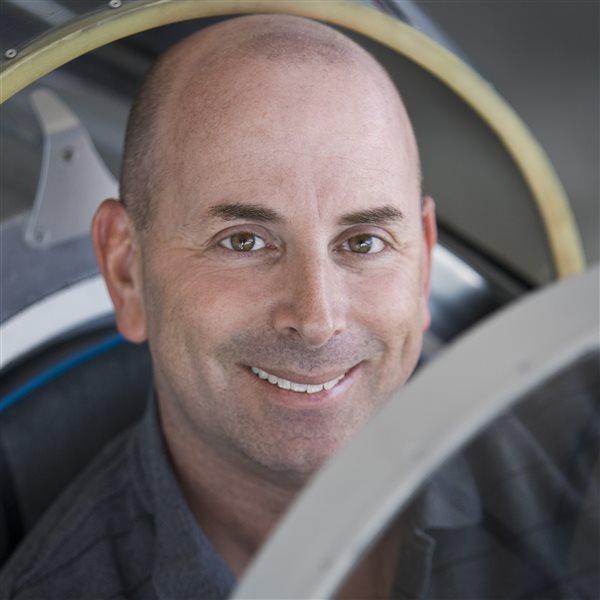Gene Pecar
Life has been a grand adventure

“I was with my mother, my aunt and uncle, my grandparents,” he said. “There were hardships, but what I remember most about that time was the feeling we were moving toward a better life together. To a little kid, it was exciting.”
In the waning days of the Soviet Union, the family gave up their possessions and handed out their savings in bribes to leave Ukraine, which was then part of the U.S.S.R. They lived in refugee camps in Austria and Italy before getting their “golden ticket” to come to the United States in 1990.
“The most majestic thing in my life was boarding a Pan Am 747 and flying to New York City,” said Pecar, now 39. “I’d never been in an airplane before, and I thought, ‘I don’t know what this is, but from now on, it’s got to be a part of my life.’”
A Jewish refugee resettlement agency brought the family to Indianapolis. There, Pecar started elementary school, learned English, became a U.S. citizen, and pursued flying. His mother remarried, but she and Pecar’s adopted father didn’t support their son’s flying ambitions. They wouldn’t stand in his way, however, if he did it all on his own.
At 15, as soon as he could legally work, Pecar found restaurant jobs that enabled him to pay for glider lessons at Indianapolis Executive Airport (TYQ). He earned a glider certificate at 16, and his mom became his first passenger in a two-seat L–23 Blanik.
At 17, Pecar joined the Indiana Air National Guard where he became a crew chief on F–16 fighters. He earned a business degree at Indiana University. Pecar earned civilian private, commercial, and instrument ratings, then was selected for U.S. Air Force pilot training. After earning his wings, he was near the end of the F–16 training program when he met a physical setback he couldn’t overcome.
“My back was giving me serious trouble and an MRI showed I had two herniated discs,” he said. “I had to have surgery, and that disqualified me from flying anything with an ejection seat. Ejecting could paralyze me.”
Pecar transferred to an Air National Guard squadron in Washington, D.C., where he flew the Gulfstream G100 (C–38) and Boeing 737 BBJ (C–40) as VIP transports and earned a master’s at Georgetown University. He started a real estate development firm in Washington, D.C., in 2008.
Pecar retired from the Air National Guard in 2022. He wanted to stay in aviation. Instead of joining the airlines, however, he became a partner in a Part 135 charter firm. He helped revive the business, then merged it with Skyward Aviation, a 30-year-old family-run business. Today, Skyward is a 70-employee air charter firm that operates 11 Learjets and three support aircraft at Washington, Pennsylvania (AFJ), and Manassas, Virginia (HEF).
“Skyward combines everything that fascinates me about business, finance, real estate, and especially aviation,” he said. “Even though I often put in 15- or 17-hour days, it doesn’t feel like work.”
Pecar credits his family for taking the risks and shouldering the burdens that put such opportunity within reach. “They wanted things to be better for the next generation and they succeeded,” he said. “I would have failed miserably in a Soviet Communist system. I’m an entrepreneur. It’s just the way I’m wired.”



